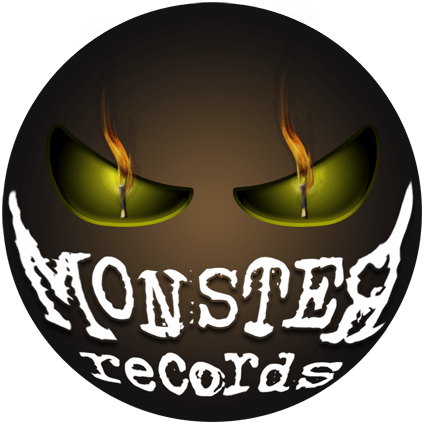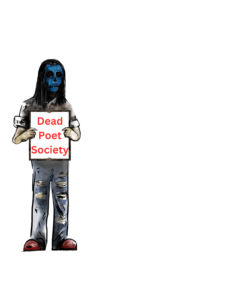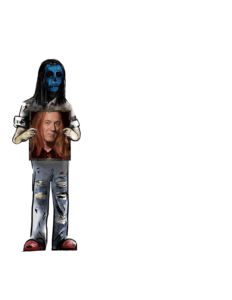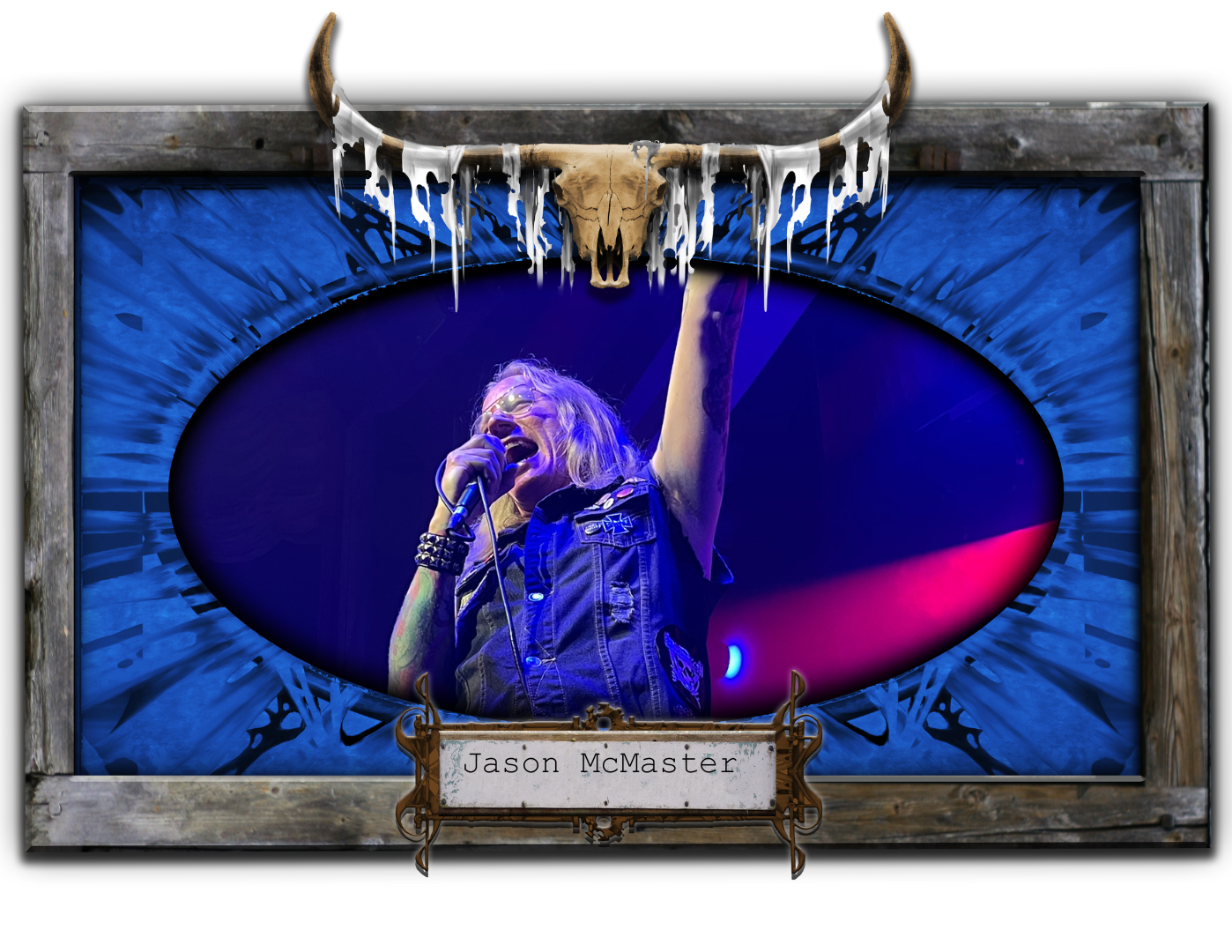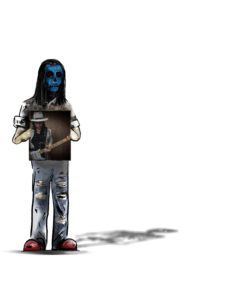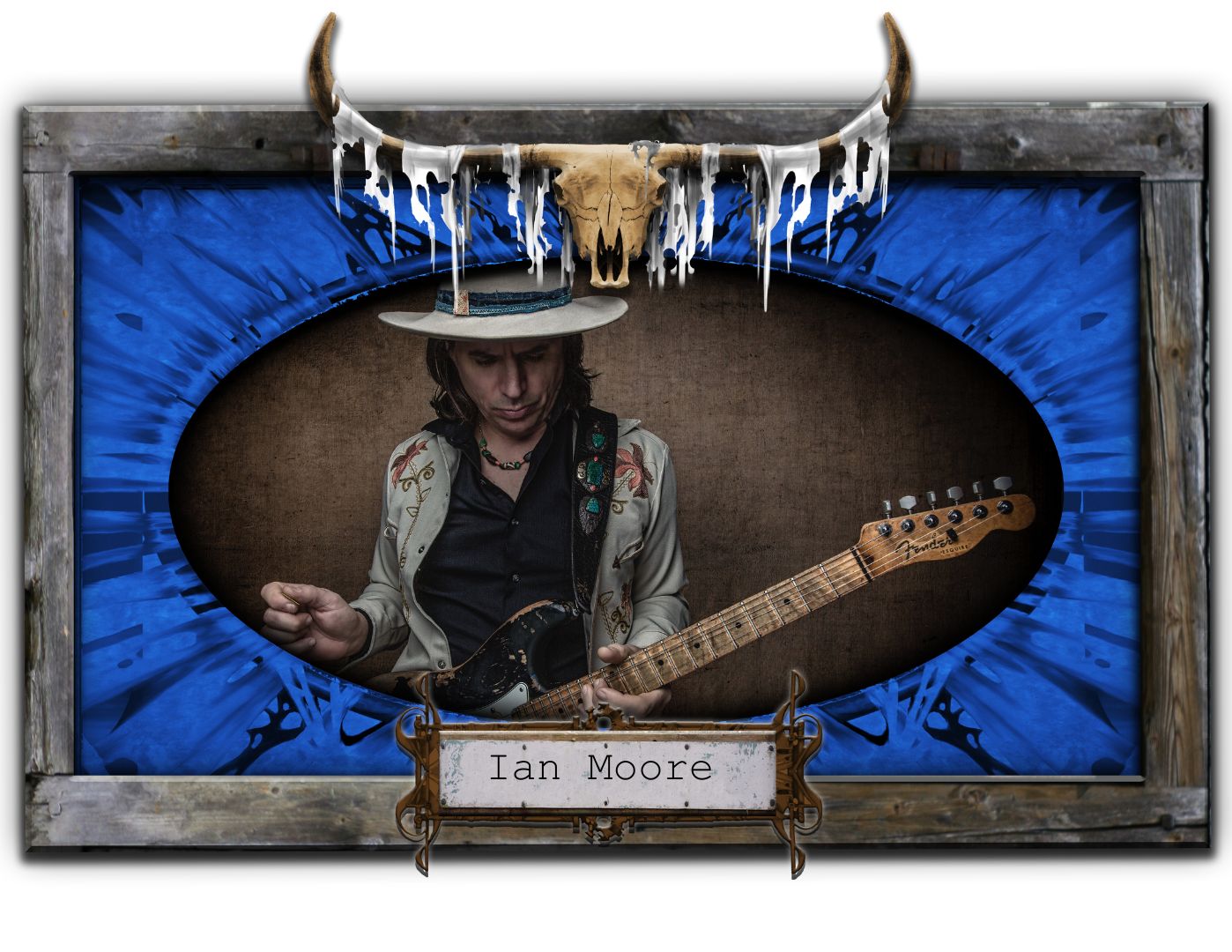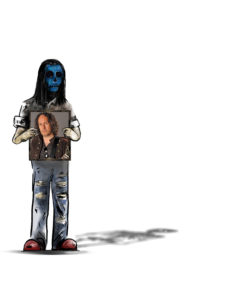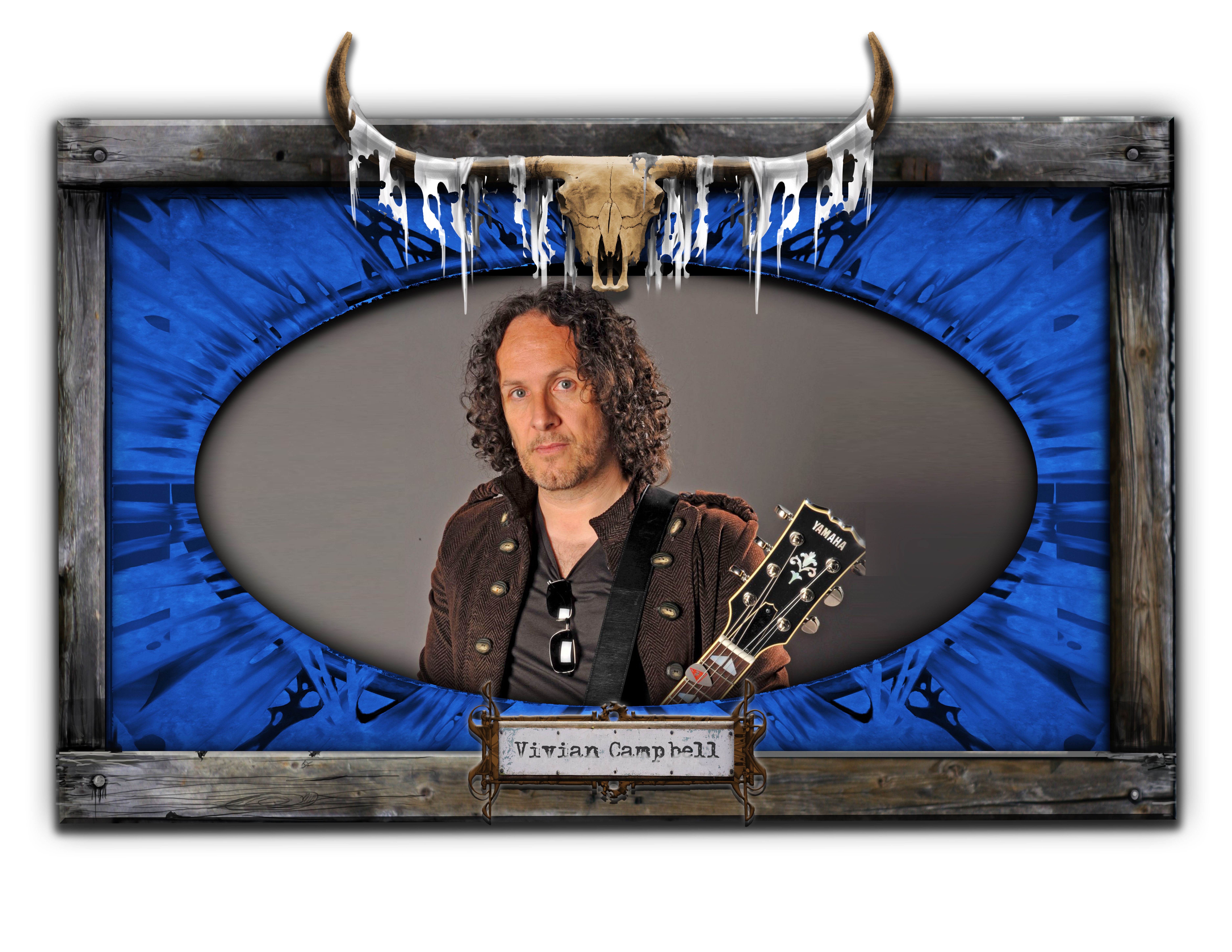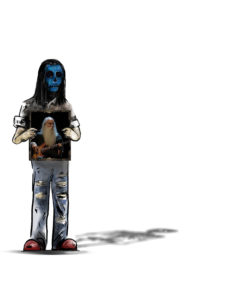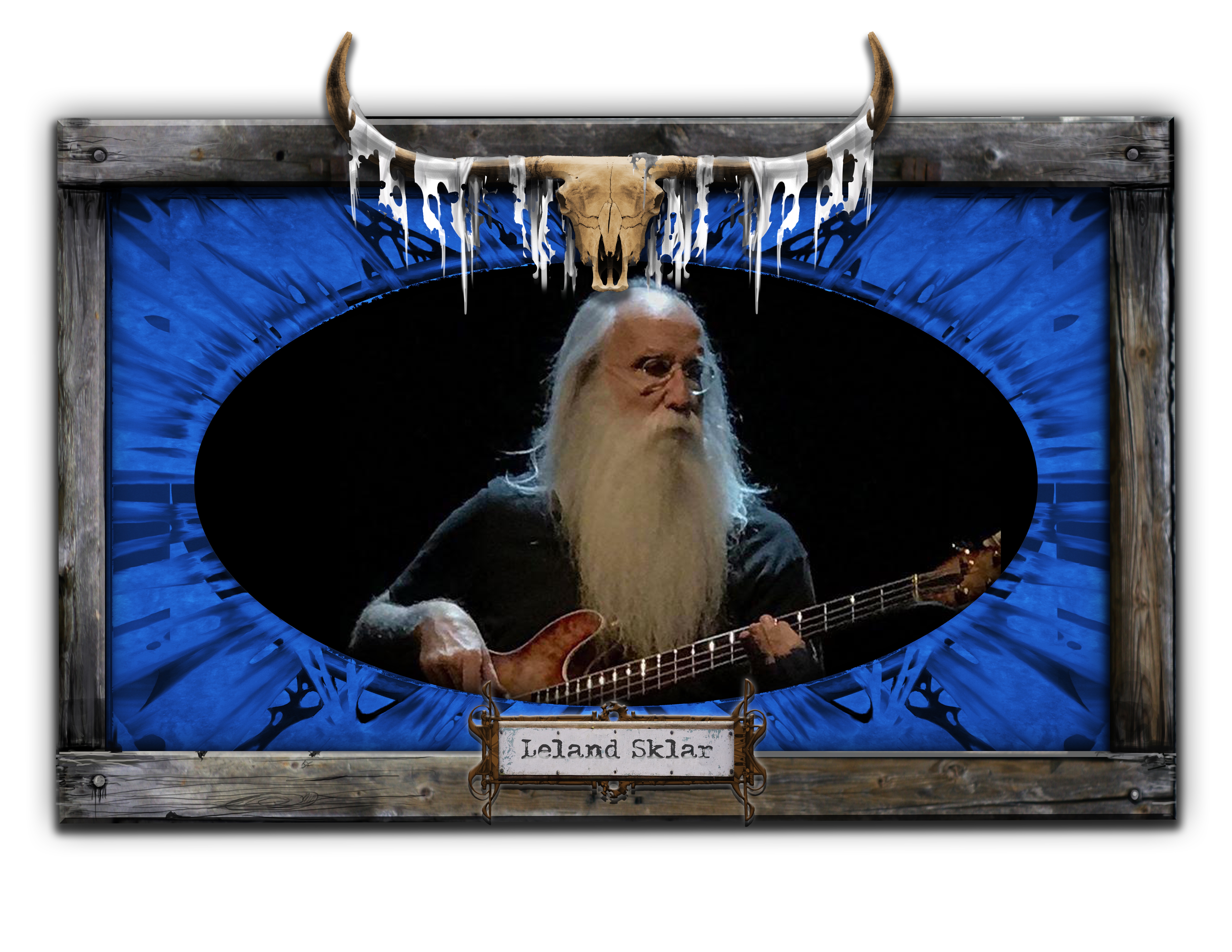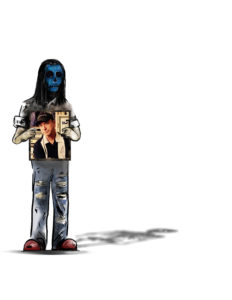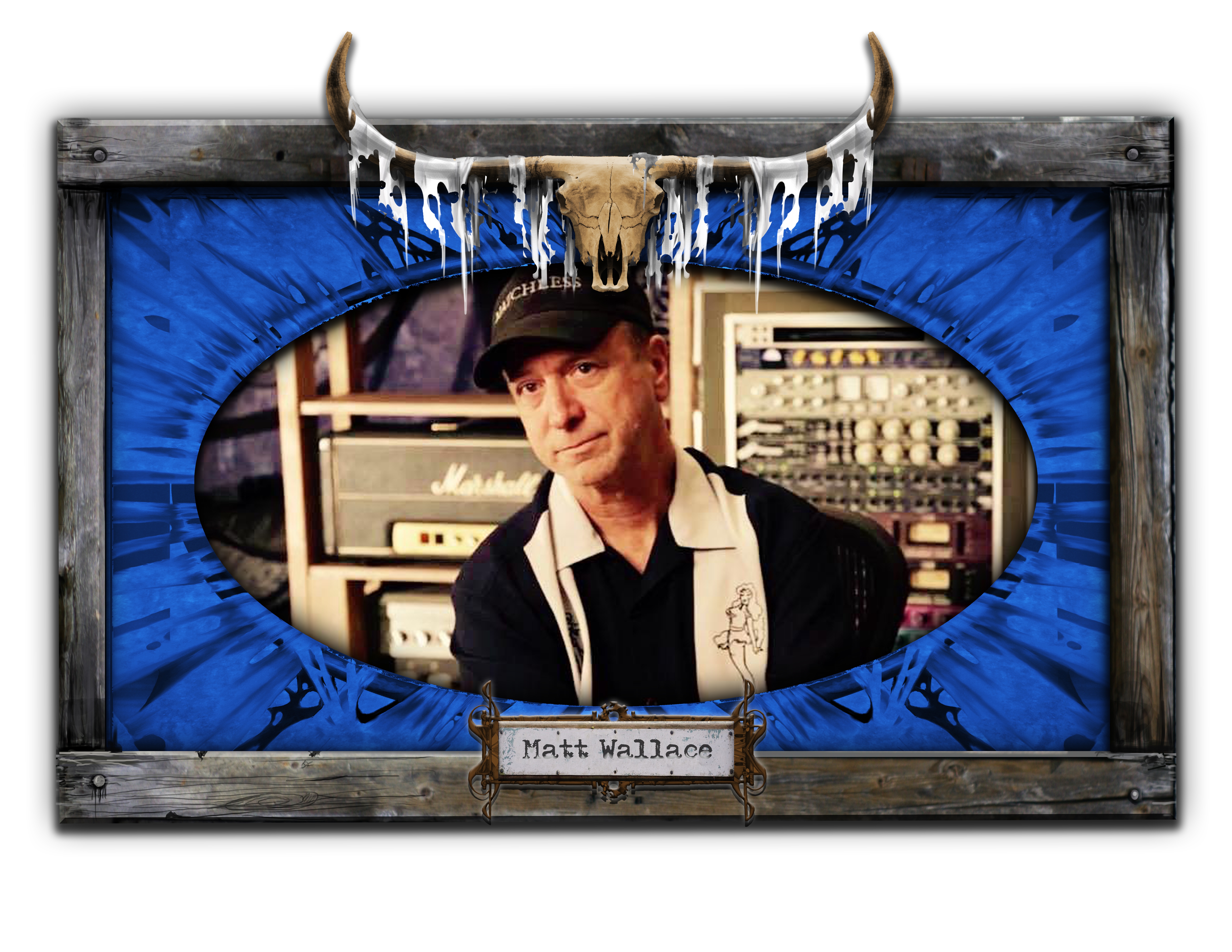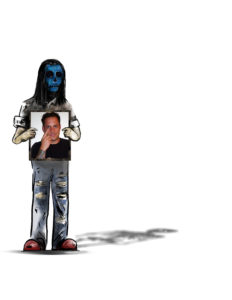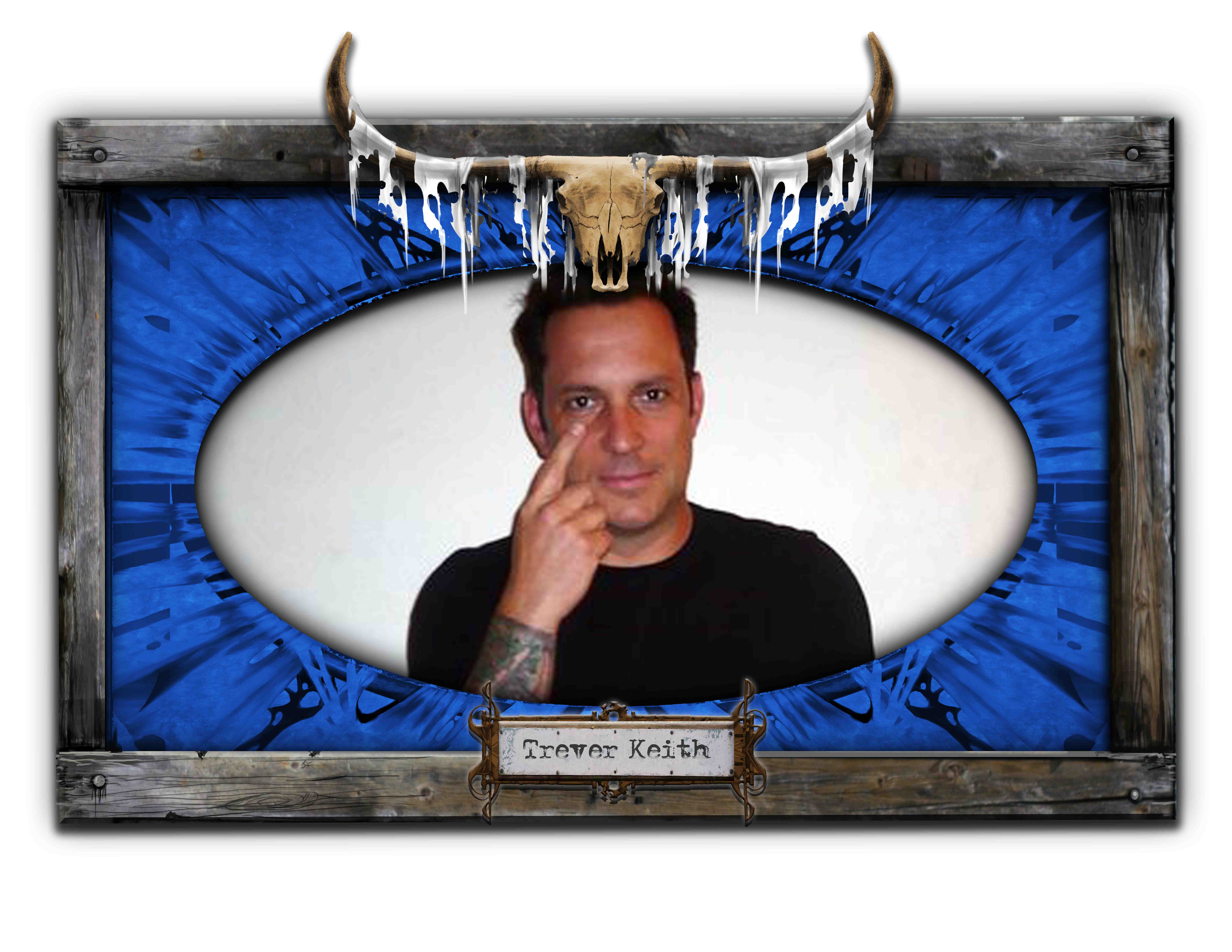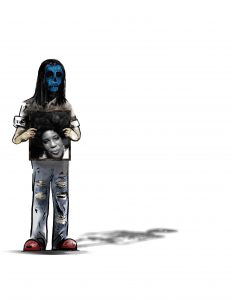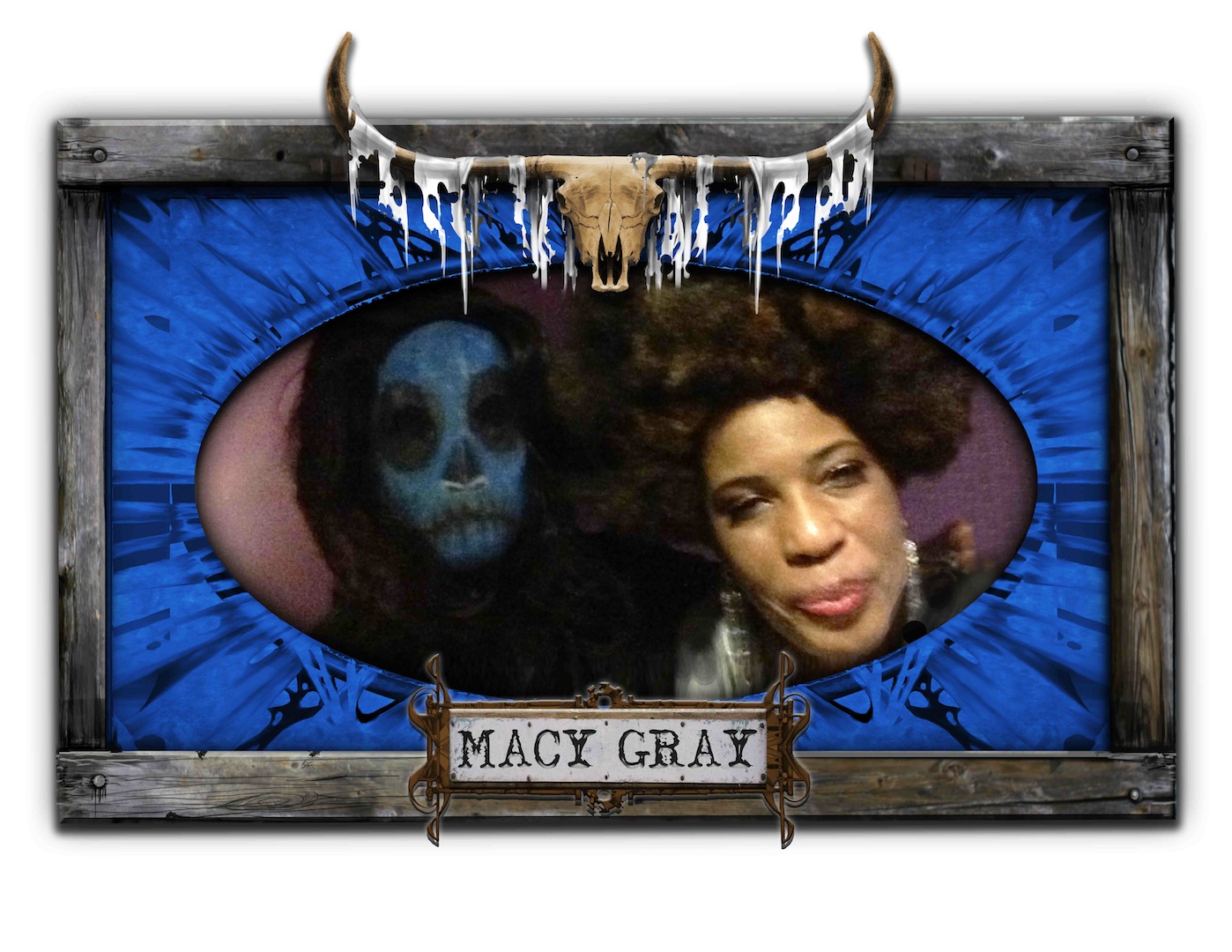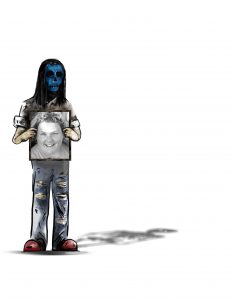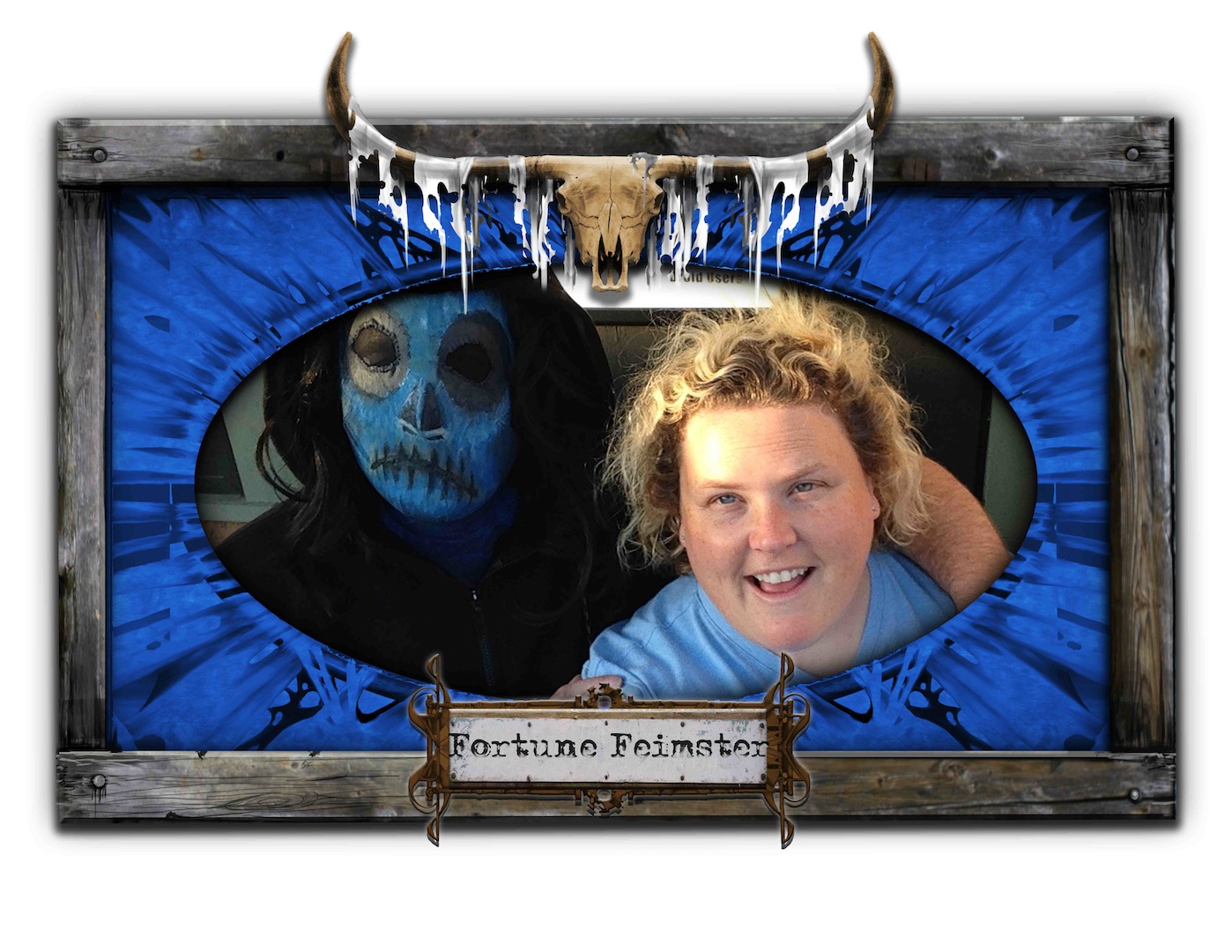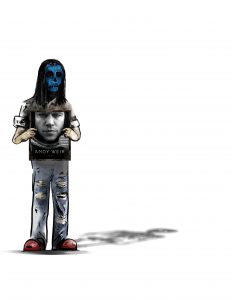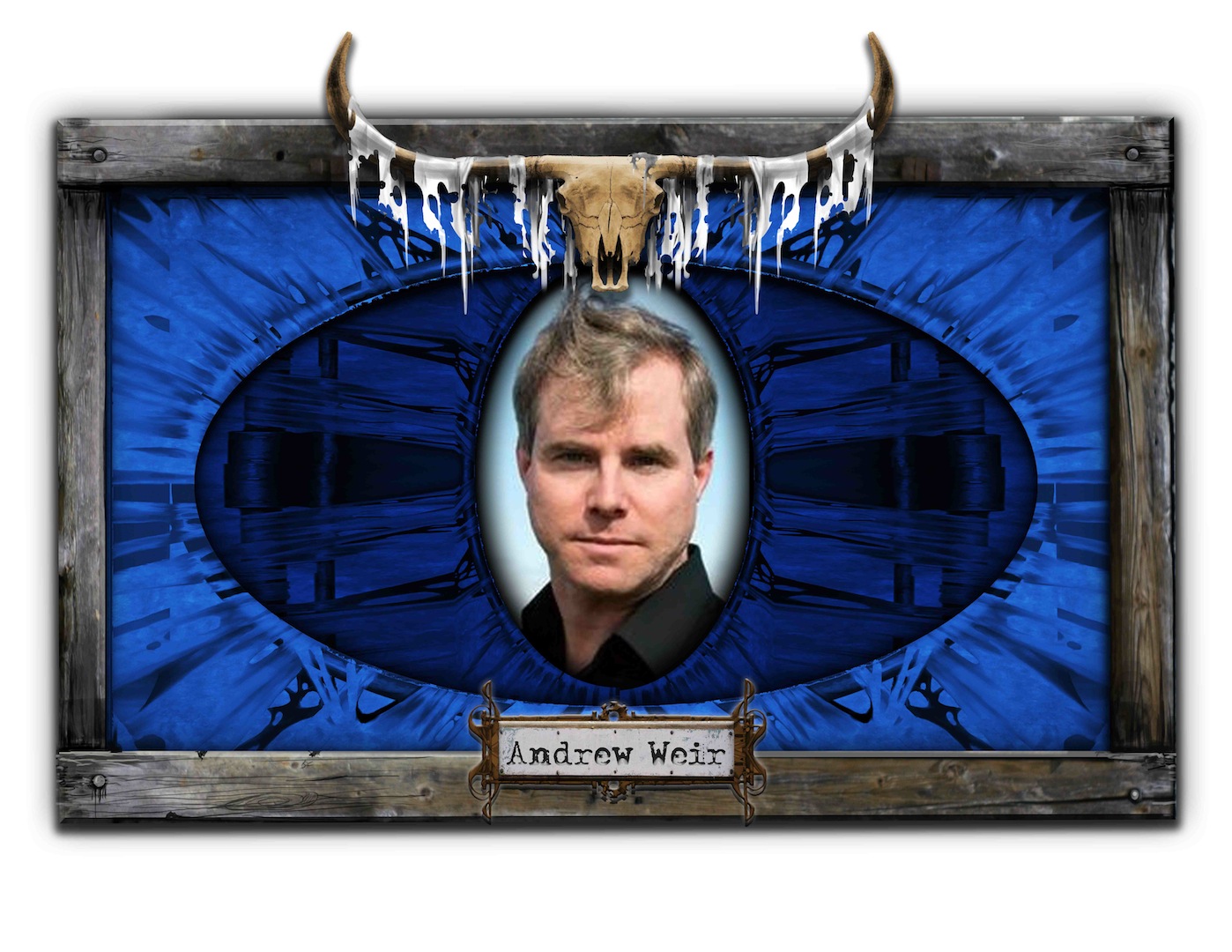Jack Underkofler – Dead Poet Society
Jack from Dead Poet Society.
Jack is my friend. You know, like an actual friend, which isn’t easy to come by as an adult. When you’re a kid, you can just say, “Hey, you’re neat. Wanna play?” But as an adult, speaking that way would make you sound unhinged, even if you secretly want to.
And I don’t mean friendly with a nod in passing – I mean friend. When we’re in the same city, we make time—hanging out, catching up on everything missed. We share the deeper parts of ourselves. Some conversations stretch long, treading lines far beyond the surface. Sadness, tragedies, hopes, and desires spill out with abandon. It’s rare, that kind of honesty, but when it happens, it reminds me how incredible it is to be human—to feel, to connect, to be alive.
Jack stands apart from other young men his age. He sees the world with an insight that belongs to someone much older—someone life has grabbed by the collar and shoved around. He’s honest, painfully aware of his surroundings, and, in his own way, tortured.
The first time I heard his voice was on a website where singers could be hired. If you had a song or a jingle and needed a great voice, he was the guy. And right away, I knew he had something most singers don’t. That elusive “it” factor people speak about with mysticism and wonder. I’ve heard managers, record execs, and agents reference it with reverence, yet most of them were clueless, empty-headed imbeciles wielding power over who “makes it” as if they alone could discern what “it” actually is. In reality, that so-called “it” factor isn’t a sound at all—it’s a feeling.
And it’s simple: it’s torture. It’s longing for something missing. Not a presence, not magic, though people describe it that way, but a deep, inescapable ache. A way of expression so raw and real, the listener has no choice but to stop and feel it. Jack has that sound. His lyrics and his approach to music resonate with me. Maybe because I’m tortured too—something of a given for a writer.
All great artists suffer from what I call Tortured Soul Syndrome. Unfortunately, you don’t develop it—you’re born with it. You come into this world sensing something is off, carrying a fire inside that never goes out. An unwanted roommate, a jackass squatting in your soul.
People who don’t have it think those who do are crazy. They ask, “Why can’t you just be normal? Get a regular job?”Meanwhile, the tortured artist silently thinks, Because I f*&king can’t! Conversely, why are you throwing your life away, you boring dentist schmuck?
Neither outlook is necessarily right, but I wanted to lay them out for context. I’m sure psychology offers a fix—some Jungian archetypal nonsense about mother wounds… blah, blah, blah. But without tortured artists, we wouldn’t have Tesla, The Beatles, or anything worth listening to, like Led Zeppelin, Radiohead or something more modern like Rainbow Kitten Surprise.
Unfortunately, for many, that torment eats them alive, leaving behind only the wreckage of bad decisions, substance abuse, and broken relationships. But for others, it fuels creation.
Create or die.
Only time will tell which category Jack ultimately falls into. So far, his creations are phenomenal. Listen to Running in Circles and Hard to Be God. Both incredible. I’ll go on record now and say Dead Poet Society will become a known entity. Just give them a minute.
Without further ado, Jack Underkofler…
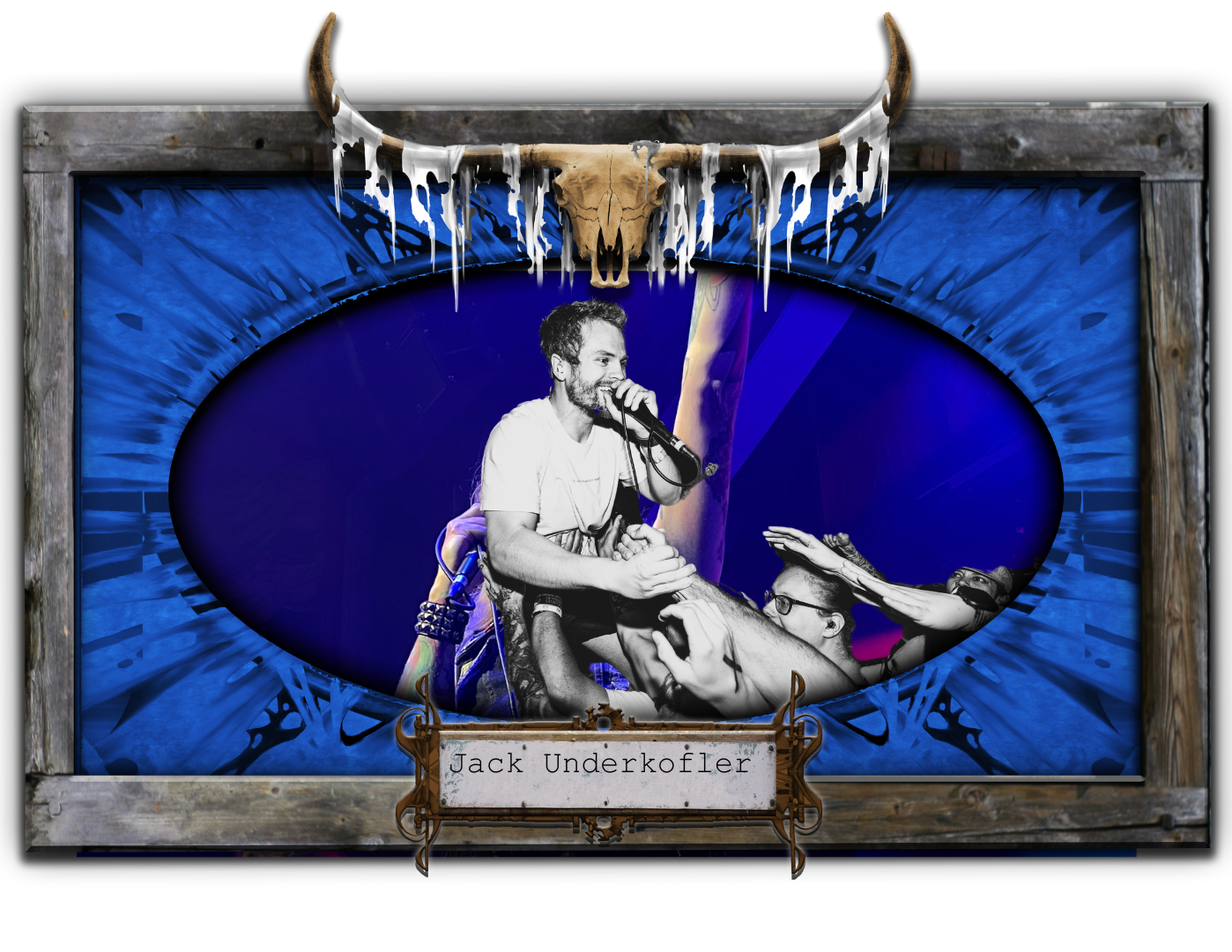
Q: What is your favorite sandwich and who makes the best one?
A: My favorite sandwich would be for my place called Nellies in red Bank, New Jersey. It’s a fat sandwich place, which is a type of sandwich and which they just put the entire meal on the thing. I’ve only been there twice, but I think about it at least once a week.
Q: What is your favorite meal that your mom makes?
A: My mom used to make this sausage and grape dish. I don’t know if it had a name or if it was an actual thing, but you basically cook bratwurst in grapes and the juice would seep into the sausages. It was amazing.
Q: How did you meet your best friend?
A: I’ve had a few different best friends over the years all of which I’m still close to, but I think proximity plays a part in that. My roommates, Jina and Christian are probably my best friends. We met all the way back in 2017, Christian’s band used to play shows with my band. I went through a pretty rough few years and he and Jina took me in. Now I live with them and their family, so I spend pretty much every day with the two.
Q: When or how did you find what you wanted to do?
A: I think from the moment I first started playing guitar when I was 12 years old, I knew that this is what I wanted to do. My dad got me this book of Bob Dylan songs and I remember going through and learning every single one it’s interesting because I think my dad always wanted me to be a doctor, but looking back on it, he couldn’t help but raise an artist. He used to make me write poetry and pairing that with guitar playing and a love for Bob Dylan kind of ensures that you’re going to write music.
Q: How did you pursue it?
A: For the first couple of years, all I did was learn songs. Then one year when I was in high school, I felt that if I didn’t start writing music, I never would so I wrote a song in a night and played it for my friends the next day. They were pretty amazed, and I loved that feeling so I kept chasing that feeling. When I was getting close to graduating high school, I had no idea where I was going to go. I knew I wanted to pursue music, but I didn’t think that that was an actual possibility. I gave myself a choice of fate really, I applied for one Music school and told myself that if didn’t get in, I would go join the military. I got in.
Q: Did you have a mentor or mentors? Who were they and what did they do for you?
A: I had a couple mentors in high school, my guitar teachers. One in particular was only my Guitar teacher for a few months, but I thought he was just so cool, and I thought I wanna be like him. His name is Tom Stanley. He would always be jamming when I came into class and would have a riff of the day on the board, that was how I got introduced to classic rock. When I got to college, there were a few professors that were massive inspirations for me. It’s weird because I would rarely talk to the professors that actually pertain to my Focus which was Guitar and voice. They were people that had done things that seem so unattainable at the time, and I noticed that they had a similar mindset regardless of the field that they ended up succeeding in. I think that’s what drew me to them.
Q: What do you dream of doing or are you already doing it? If so, what is the goal?
A: It’s a tough question to answer because I am doing what I’ve always dreamed of doing. However, continuing to dream keeps me going so in that regard, I’m not doing that yet the growing up was to be able to share my feelings and thoughts with other people and find, the ones that felt the same as me. I’m doing that now it’s pretty incredible to think about for me. You got so lost in the weeds though it’s kind of hard to see that sometimes. I’d like for that to keep growing, but I’m pretty proud of how far I’ve come
Q: What would your 15-year-old self say to you now?
A: I think he’d be in as much disbelief as me that it’s actually working.
Q: If life was a person, what would you say?
A: I’d ask him to ease up on the perspective building experiences lol. Probably tell him that I appreciate the path and the challenges I’ve been given because they’ve made me a strong person, but maybe a few months of smooth every once in a while, road would be a nice change of pace to recalibrate.
Q: If you were in charge of the world and you had no restrictions, real or imagined, what is the one thing you would give it?
A: probably a telepathic ability to read people. I think that the way people treat each other is so determined by a lifetime worth of compounded experience and being able to see that as you interact with somebody, I think would change the way people treat each other drastically.
Q: Do you believe God is real?
A: No
If yes, then how does that belief help craft a better society?
If not, then how do you think we can craft a better society?
A: I think that God is just a culmination and personification of what we naturally feel as people. There’s an inherent nature in all of us to know right from wrong. I think that people wanted an answer for that inherent nature, a foundation in which to put that into tangible form so they created the idea of God. I think that where they God or without a God, as long as those inherent principles are taught, that helps build a better society.
Q: Do we still need religion?
A: I think that people should do or believe whatever brings them fulfillment. The idea of “needing” is determined in individual to individual in our time. As long as that religion doesn’t have legal authoritative control it is fine. I think that governments in the past needed religion as a form of control and self-censorship. It was an assurance that you could maintain authority over an entire region because governments lacked the ability to maintain power from a distance. In that regard, I don’t think we need religion anymore.
Q: How is society getting things right?
A: I think that the overwhelming amount of information that is shared, globally between people i.e. thoughts, ideas, etc. has brought a human element to unfamiliar cultures and languages. There are downsides to that kind of access, but I think that that one is overwhelmingly positive.
Q: How do we see others as equal of the same life that we wish for ourselves?
A: I think approaching every individual you meet with the same level of respect that you would show yourself is fundamental in that regard. The life that somebody’s born into does not determine who that person is, although it may greatly influence it. The saying “there but for the grace of God go I” should always be the place you start mentally.
Q: Do you have hope for the future?
A: I do. People are natural problems, solvers, and where there is a problem there are people trying to solve it. We are inherently imperfect, but we strive for perfection. That is what humans do. The sum of that dedication for better has gotten us this far; we can save people’s lives through medicine, we can understand the universe in which we live through science, we can better understand each other through art and philosophy, and that undying curiosity for what’s next will never go away.
Q: What do you think happens after we die?
A: I don’t know, and I don’t have control over it so all I can do is focus on this life and make sure that I live it to the best of my ability. Whatever it is, I know it will be peaceful.
Alternate practical question:
Q: What is a -practical- thing that works for you? For example, I can’t find a good razor. So many products just don’t live up to their advertising.
Exercise. It’s a way for me to meditate. I work out very intensely so that it consumes all of my focus. There’s something about putting yourself in a stressful and painful state and finding calm there. It feels as if I’m fighting entropy, and the result is a healthier body of mind.
